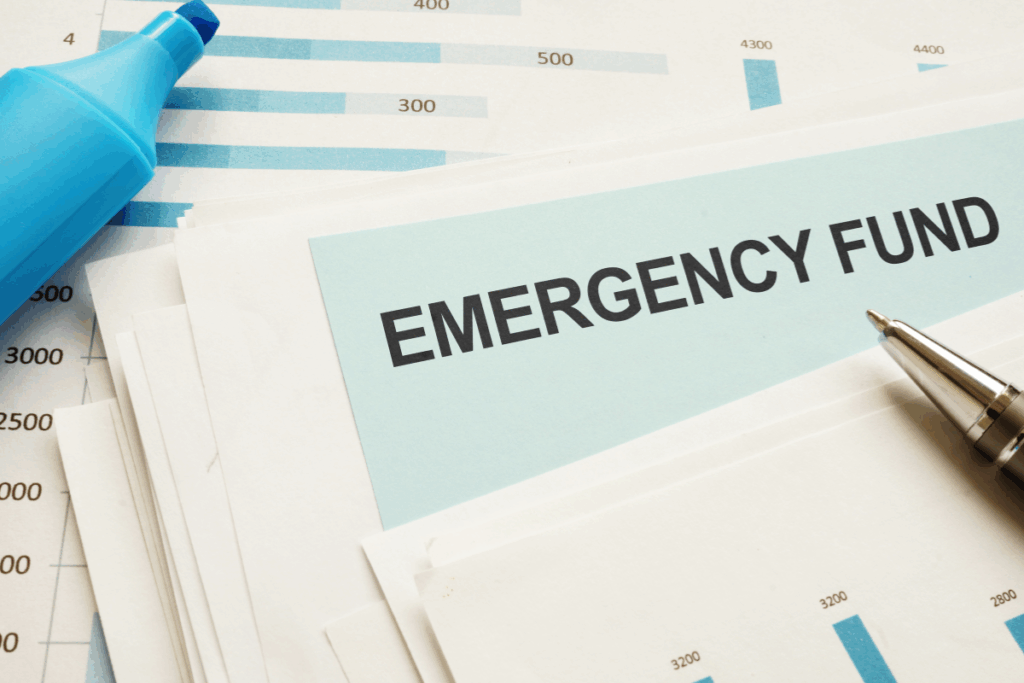Life is full of surprises, and not all of them are pleasant. From sudden medical emergencies to urgent home repairs or last-minute travel for family matters, unexpected financial challenges can arise at any moment. In Singapore, where the cost of living is high and day-to-day expenses continue to rise, being financially prepared is not just smart, it is essential. Without proper planning, these sudden costs can strain your budget, disrupt your financial goals, and even push you into debt.
One of the most effective ways to safeguard yourself against such shocks is through an emergency fund. An emergency fund acts as a financial safety net, giving you peace of mind and immediate access to money when you need it most. But what happens when your emergency fund is insufficient, or the situation requires more immediate liquidity than your savings can provide? In such cases, taking a responsible emergency payday loan Singapore from a trusted money lender Singapore can be a practical solution.
This article will provide a comprehensive guide for Singapore residents on how to manage financial emergencies. You will learn when it makes sense to tap into your emergency savings and when a short-term loan may be necessary. We will explore strategies for building a robust emergency fund, tips for responsible borrowing, and ways to avoid common financial pitfalls. By the end, you will be equipped with the knowledge to make informed decisions that protect both your finances and your peace of mind.
Understanding Emergency Funds
An emergency fund is a pool of money set aside specifically for unforeseen circumstances. Unlike savings for vacations, electronics, or home improvements, an emergency fund is meant to be a financial safety net. It ensures that you do not have to disrupt your regular finances or incur high-interest debt when unexpected expenses arise.
In Singapore, financial advisors often recommend keeping at least three to six months of living expenses in an emergency fund. This includes rent or mortgage, utilities, groceries, insurance, transport costs, and any other essential monthly expenditures. The goal is to provide enough liquidity to weather sudden financial shocks without the stress of debt accumulation.
For more guidance on building an emergency fund and understanding the role of licensed money lenders in Singapore, you can refer to this guide to licensed money lenders in Singapore.
Why Emergency Funds Matter
Emergency funds offer several benefits:
- Financial Security: Having readily available funds can prevent panic during unexpected situations.
- Debt Avoidance: Using your own savings rather than borrowing reduces the risk of paying high-interest fees on loans. Learn more about borrowing responsibly from a money lender Singapore.
- Peace of Mind: Knowing that you are prepared for financial surprises allows you to make rational decisions rather than rushed ones.
However, even the most well-prepared individuals may find their emergency fund insufficient. In these cases, an urgent loan may provide the temporary financial relief needed to manage the situation responsibly.
When to Tap Your Savings
Tapping into your emergency fund should always be the first consideration for handling unexpected expenses. Using your own money comes with the advantage of no interest payments and no risk of debt accumulation. Here are situations where it is generally better to use your savings:
- Medical Expenses: Singapore has excellent healthcare facilities, but emergency treatments or specialist consultations can be costly. Using your emergency fund to cover unexpected medical bills prevents stress and avoids the need for high-interest borrowing. Learn more about managing expenses and CPF contributions here.
- Home Repairs: Essential home repairs, such as plumbing issues or electrical malfunctions, may need immediate attention. Emergency savings allow you to cover these costs without disrupting your monthly budget.
- Transport Emergencies: If your car breaks down or you need urgent transportation, tapping into your emergency savings can provide instant liquidity.
- Small Unexpected Expenses: Smaller costs, such as sudden travel for family emergencies or urgent school fees, are ideal situations for using emergency funds rather than loans.
Evaluating Your Financial Situation
Before using your savings, it is important to evaluate your financial situation carefully. Ask yourself these questions:
- Do I have enough money in my emergency fund to cover this expense and still retain a buffer for future emergencies?
- Can I afford to reduce my savings without affecting other financial goals?
- Is this truly an emergency, or can the expense be delayed or budgeted over time?
Answering these questions honestly ensures that you do not deplete your emergency savings unnecessarily and maintain a safety net for future needs. You can also explore ways to save money effectively to strengthen your emergency fund.
When to Consider an Urgent Loan
There are situations where your emergency savings may not be enough, or using them could compromise your financial stability. In such cases, taking an urgent loan from a reputable source may be a more practical solution.
What is an Urgent Loan?
An urgent loan is a form of short-term borrowing designed to provide quick access to funds for emergency situations. In Singapore, options include personal loans from banks or an emergency payday loan Singapore from a money lender Singapore. These loans typically provide fast approval and disbursal, making them suitable for immediate financial needs.
Scenarios for Urgent Loans
- Large Unexpected Medical Bills: Certain medical emergencies or elective procedures may exceed your emergency savings. An urgent loan can bridge the gap without jeopardising your overall financial health.
- Major Home or Vehicle Repairs: Sometimes, critical repairs can cost more than your emergency fund. A responsible urgent loan allows you to address the issue immediately while spreading repayment over manageable installments.
- Cash Flow Shortfalls: For individuals with multiple financial obligations, an urgent loan can provide temporary liquidity to meet immediate needs without affecting ongoing expenses such as rent or utilities.
Choosing the Right Loan
If you need to borrow, it is important to choose a loan that is transparent, affordable, and legally compliant. In Singapore, money lender Singapore options are regulated under the Moneylenders Act, ensuring fair lending practices and protecting borrowers from illegal or predatory schemes.
When considering an emergency payday loan Singapore, look for the following:
- Transparent Interest Rates: Ensure that all interest rates and fees are clearly stated upfront.
- Reasonable Repayment Terms: Avoid loans with extremely short repayment periods that may cause financial strain.
- Licensed Lender Status: Only borrow from licensed money lender Singapore to ensure legal protection and responsible lending.
- Minimal Processing Time: For urgent situations, the ability to access funds quickly is crucial.
Comparing Loans to Savings
When deciding between using savings and taking a loan, consider the following factors:
| Factor | Emergency Savings | Urgent Loan |
| Cost | No interest, no fees | Interest and possible service fees |
| Speed | Immediate access | Usually fast but may require verification |
| Financial Impact | Reduces liquid savings | Increases debt obligation |
| Risk | Low | Higher if repayment is delayed |
In general, using your emergency savings is cheaper and simpler, but loans offer a safety net when your savings are insufficient. The key is to borrow responsibly and avoid relying on loans for non-emergency expenses.
Building a Robust Emergency Fund
To minimise reliance on urgent loans, it is essential to build and maintain a robust emergency fund. Here are practical steps for Singapore residents:
- Start Small: Even setting aside a modest amount each month can accumulate into a meaningful emergency fund over time.
- Automate Savings: Set up automatic transfers from your salary to a separate savings account dedicated to emergencies. This reduces the temptation to spend the money on non-essential items.
- Keep it Liquid: Emergency funds should be kept in accounts that offer quick access, such as savings accounts or money market accounts, rather than long-term fixed deposits.
- Reassess Regularly: Periodically review your emergency fund to ensure it aligns with your current expenses and lifestyle changes.
- Prioritise Over Non-Essential Goals: While investing and long-term savings are important, the priority for emergency funds is immediate access and financial security.
Avoiding Common Pitfalls
Building and using an emergency fund requires discipline and foresight. Common mistakes to avoid include:
- Mixing Funds: Using emergency funds for regular discretionary spending reduces the safety net for actual emergencies.
- Underestimating Expenses: Many people underestimate monthly living costs, resulting in insufficient emergency savings.
- Over-Borrowing: Relying on multiple loans without a clear repayment plan can create a debt spiral that is hard to manage.
Combining Savings and Loans Strategically
In some cases, a combination of emergency savings and a small urgent loan may be the best approach. For example, if a medical procedure costs slightly more than your emergency fund, you could use your savings for part of the cost and cover the remainder with a responsible urgent loan. This strategy helps preserve your savings while ensuring that critical expenses are covered promptly.
Responsible Borrowing Tips
- Only Borrow What is Necessary: Do not take loans for convenience or non-emergency spending.
- Compare Options: Even for urgent loans, compare rates and terms from different licensed money lender Singapore or banks to ensure affordability.
- Plan Repayment: Ensure that repayment schedules align with your income flow to avoid missed payments and additional fees.
- Avoid Illegal Lenders: Only deal with licensed money lender Singapore to protect yourself from scams or predatory lending practices.
Conclusion

Managing financial emergencies effectively requires preparation, discipline, and informed decision-making. In Singapore, where unexpected costs can arise at any time, having a well-stocked emergency fund is the first line of defence. Tapping into your savings is generally the most cost-effective way to handle unforeseen expenses, while a responsible urgent loan, such as an emergency payday loan Singapore from a licensed money lender Singapore, can provide a lifeline when savings fall short.
Explore more about licensed money lenders Singapore, borrowing options, and how to manage your credit here, here, and learn more about savings tips here.

